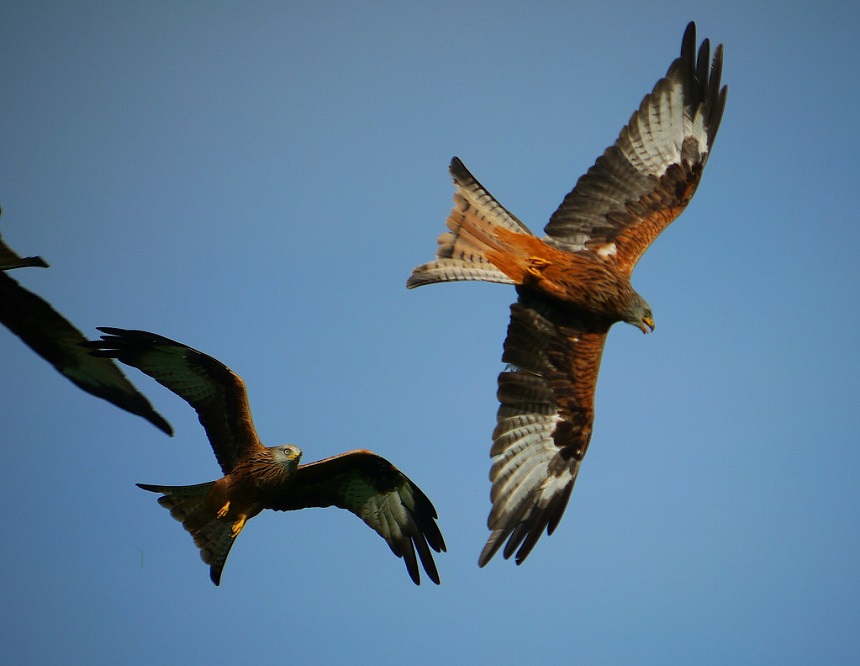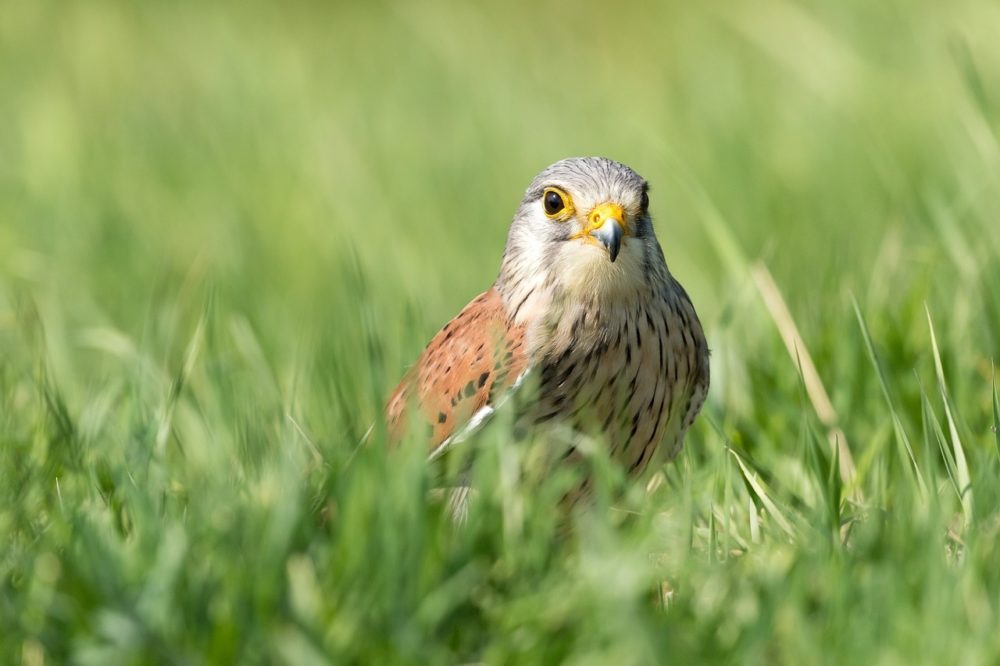New Citizen Science project monitors Welsh raptors

The British Trust for Ornithology (BTO) has launched a brand-new citizen science project aimed at enhancing our understanding of birds of prey across Wales.
BTO is seeking volunteers across Wales to help locate and observe birds of prey, particularly within the country’s Protected Areas.
This unique project, named Cudyll Cymru (part of a new Welsh Raptor monitoring initiative), will build a network of dedicated volunteers to monitor the health and habitats of four widespread raptor species: Buzzard, Kestrel, Red Kite and Sparrowhawk, along with one crow species, the Raven.
Raptors are critical to the health of ecosystems, acting as top predators. Their sensitivity to changes in prey availability, habitat conditions, and climate makes them pivotal for researchers when detecting and monitoring environmental shifts.
Chosen species
The five chosen species covered by the study are widespread across Wales, and relatively familiar to most residents.
Common Buzzard
A large bird of prey, these can be seen in a wide range of habitats. Their preferred food includes Rabbits and other small animals and birds, carrion, insects and earthworms.
Kestrel

These pigeon-sized falcons are frequently seen hovering over fields and roadside verges, searching for voles, mice and other small mammals.
Red Kite
Once threatened with extinction, these majestic birds can now be seen in many parts of Wales following successful, targeted conservation efforts. Primarily a scavenger, Red Kites mainly eat carrion, along with small animals and birds.
Sparrowhawk
Another pigeon-sized raptor, these dashing hawks feed almost entirely on other birds. Mainly confined to woodlands, Sparrowhawks will also regularly visit gardens and parks.
Raven
The largest member of the crow family, Ravens are not strictly raptors but share many characteristics of birds of prey. These distinctive birds will eat a wide range of food from berries to carrion, as well as small animals and birds.
The study will collect data to assess raptor and Raven population trends and breeding success, with a particular focus on Wales’ Protected Area network, which includes Sites of Special Scientific Interest (SSSIs) and Special Protection Areas (SPAs).
This information will be vital in supporting conservation strategies and for informing government commitments to wildlife protection, especially as Wales faces ecological pressures from land use and climate change.
Get involved
BTO is seeking volunteers of all levels of experience to join Cudyll Cymru. You only need to identify at least one of the key species and count the birds, nests, or territories in your chosen ‘patch’. Training will be provided through bird identification videos, written guides, and 1-on-1 mentoring. Flexible participation means you can contribute as little as two hours a month, making it easy to fit into your schedule.
Core surveys run from March through August, with data submitted through an easy-to-use online portal. Volunteers will receive full support, ensuring a smooth and rewarding experience.
Cudyll Cymru officially launches in January 2025, but you can register your interest now to be among the first to start monitoring.
For more information and to sign up, visit the project webpage at:
Charlotte Griffiths, Welsh Raptor Monitoring Coordinator Project Lead, said: “The five species we’re focusing on are significantly under-reported, and the data collected through these surveys will provide crucial insights into their breeding populations across Wales.
“In developing and supporting a future network of monitors, we’re taking great strides in securing the future of Welsh raptors.”
Dr Callum Macgregor, Senior Research Ecologist at BTO Cymru, added: “Participating in bird surveys is a wonderfully rewarding way to spend time outdoors.
“Anyone can take part and make an important contribution to conservation. We hope that Cudyll Cymru will provide the opportunity for lots of people to experience this for the first time, gaining valuable skills and knowledge in the process.”
This project is funded by the Nature Networks Programme. It is being delivered by the Heritage Fund, on behalf of the Welsh Government.
Support our Nation today
For the price of a cup of coffee a month you can help us create an independent, not-for-profit, national news service for the people of Wales, by the people of Wales.





